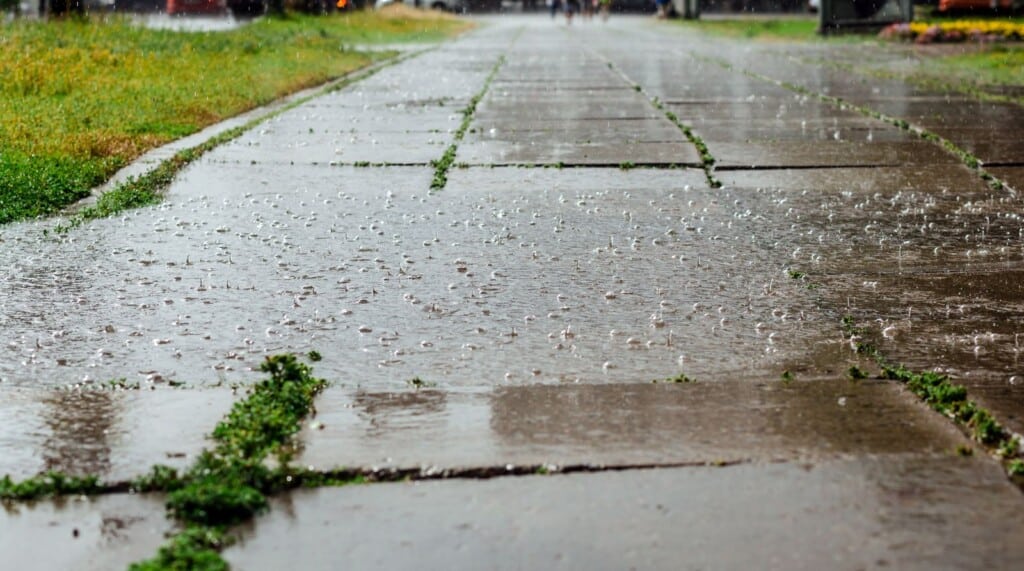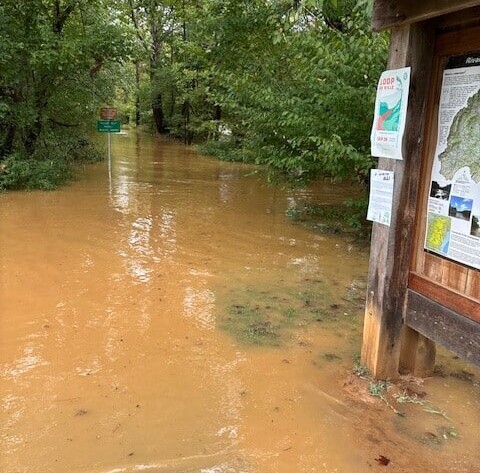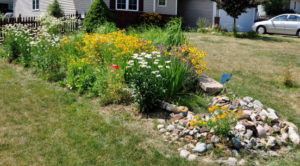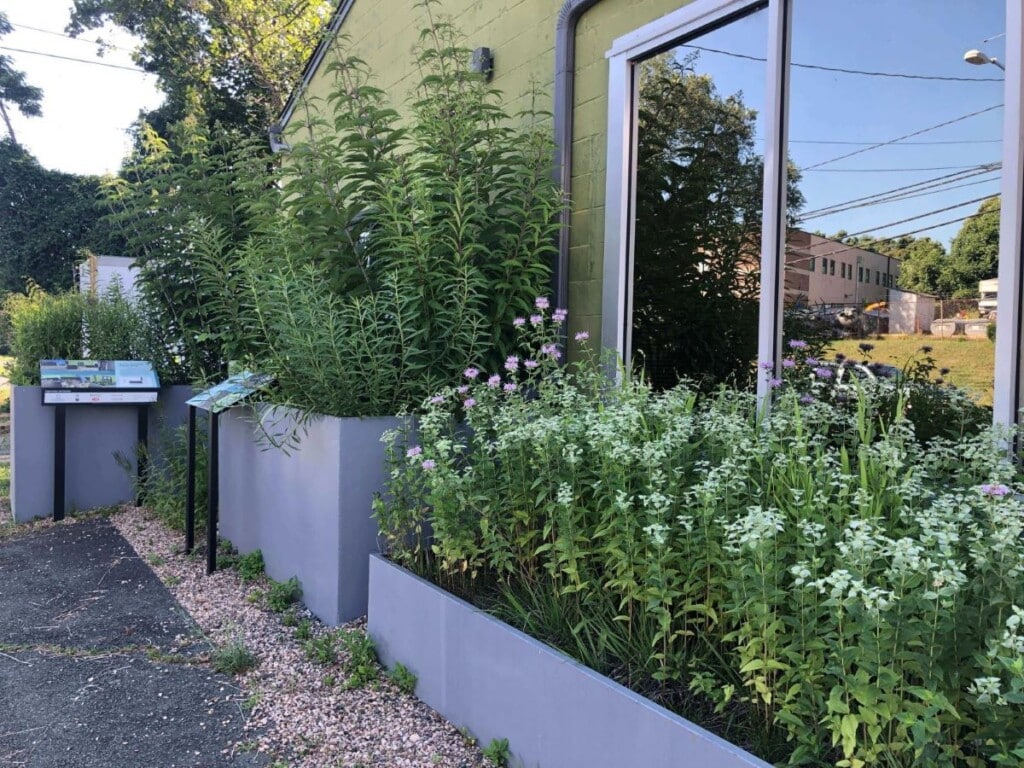What is stormwater runoff?
Stormwater runoff is what we call rain or snowmelt that flows over the ground instead of soaking in – it is essentially wasted water that can cause hazardous conditions and decrease property value. This runoff is not available for plant use and does not recharge our groundwater, potentially leading to worsened drought conditions between storms.

Why is stormwater runoff happening?
Stormwater runoff is a concern in areas of developed land where the water can’t soak into the ground – like parking lots, the rooftops of buildings, sidewalks, and roads. When land is developed, the natural landscape is replaced with hard “impervious” surfaces that prevent water from soaking into the ground. The Rivanna River watershed is experiencing population growth and development, which means more impervious surfaces and more stormwater runoff. Stormwater is also increasing as rain events become more intense.
Why is stormwater a problem?
Stormwater runoff can pick up and carry sediment, chemicals, hazardous materials, and litter into our streams and rivers, harming wildlife and negatively impacting water quality. It can also cause flooding and erosion, reducing property value and harming infrastructure.

What can you do to help?
- Plant and protect trees – Perhaps the easiest way to manage stormwater is to plant new trees and protect the trees that we already have. Healthy trees and native plants help soak up the rain with their large and deep root systems. Removing invasive species can help keep our trees from being smothered and overwhelmed, enabling them to thrive, grow bigger, and live longer. If you would like more information about removing invasive species, click here to learn more!
- Divert your downspouts – You can also reduce stormwater runoff from your property by diverting your downspouts away from paved surfaces, like driveways, to natural surfaces. Trees, lawns, and gardens can absorb more water than impervious surfaces.
- Rain gardens –
 Installing a rain garden can also help. Rain gardens are specially constructed gardens designed to collect stormwater runoff and filter pollutants before they reach the Rivanna River. Rain gardens can naturally catch, filter, and keep water away from your house and paved areas. Rain gardens can be attractive for people and wildlife – providing important habitat for pollinators and wildlife. Here are two video tutorials on rain gardens if you would like to learn more:
Installing a rain garden can also help. Rain gardens are specially constructed gardens designed to collect stormwater runoff and filter pollutants before they reach the Rivanna River. Rain gardens can naturally catch, filter, and keep water away from your house and paved areas. Rain gardens can be attractive for people and wildlife – providing important habitat for pollinators and wildlife. Here are two video tutorials on rain gardens if you would like to learn more:
- Rain barrels – Rain barrels can reduce stormwater runoff and save you money. Rain barrels can be connected to your gutter downspouts to collect rain from your roof. This water can then be used to water your garden or even to wash your car, helping to reduce your water bill.
- Stormwater planters – Stormwater planters are a cross between a rain garden and a rain barrel. Rain water from roofs is directed into
 above-ground planter boxes that have layers of gravel and special soil to hold and filter water. They are planted with rain garden appropriate plants that take up some of the water. RCA installed stormwater planters at our office on River Road and at the City of Charlottesville’s Public Works building on 4th St. NW if you want to see these in person.
above-ground planter boxes that have layers of gravel and special soil to hold and filter water. They are planted with rain garden appropriate plants that take up some of the water. RCA installed stormwater planters at our office on River Road and at the City of Charlottesville’s Public Works building on 4th St. NW if you want to see these in person. - Remove paved surfaces – Driveways and walkways can be built or replaced with surfaces that absorb stormwater instead of commonly used impervious materials. Permeable asphalt and pavers improve drainage on your property and benefit our watershed. If you live in Charlottesville, reducing impervious surfaces on your property can also save you money. Learn more here.
Want to learn more?
- The Thomas Jefferson Soil and Water Conservation District can help you determine what stormwater management resources are available and best for your property. Financial assistance may be available to help support your project.
- The Alliance for the Chesapeake Bay offers an overview of stormwater and helpful solutions for homeowners. This is a great place to get started before moving into more technical resources.
- The Virginia Department of Forestry provides more resources for rain garden design and implementation for landowners.
Rivanna Conservation Alliance is a proud partner in the Rivanna Stormwater Education Partnership.
If you have additional questions, feel free to contact us directly at info@rivannariver.org.
